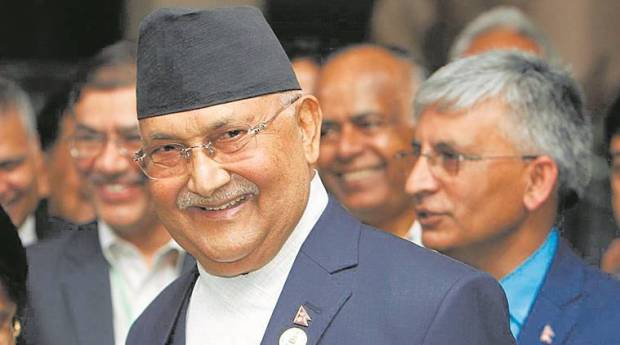Nepal court replaces prime minister after months of turbulence
By Bhadra Sharma and Mujib Mashal
KATHMANDU — Nepal’s highest court Monday (12) stripped the prime minister of his duties and reinstated the Parliament that he had dissolved twice in recent months, opening a new chapter in the messy political conflict that has stagnated governance in the midst of a severe COVID crisis.
It wasn’t immediately clear if the court’s ruling would put to rest the latest political drama in the country’s turbulent transition to democracy since the monarchy was dissolved in 2008. Opposition leaders welcomed the ruling, calling it a victory for Nepal’s Constitution. But supporters of the recent prime minister, K.P. Sharma Oli, poured onto the streets with black banners in protest, indicating that they would not accept the decision.
The Supreme Court ruled as unconstitutional Oli’s move in May to dissolve the Parliament for a second time and call for early elections when his leadership was in question. In an indication that Oli had deprived the opposition of a chance to form a government when they had enough support, the court ordered Oli replaced as prime minister by Sher Bahadur Deuba, the leader of the opposition.
“The court cannot appoint the prime minister. Appointing someone as prime minister is purely a Parliament’s business,” said Rajan Bhattarai, an adviser to Oli.
Sridhar K. Khatri, a political analyst and former professor at Nepal’s Tribhuvan University, said that disputing the court’s decision was a clear sign of how divisive the country’s politics had become in recent years.
“If the court decision is not to adhered to, it will lead to a constitutional crisis,” he said.
If Deuba, the 75-year-old leader of the Nepali Congress party, manages to become prime minister, this will be the fifth time he will have held the position since the country restored multiparty politics in 1990. The court called for him to be appointed to the job within two days, but he would then need to affirm his position with a vote of confidence on the floor of the parliament.
Much of the trouble for Oli, who began his second term as prime minister in 2018, started over the past year when fissures in his Communist Party of Nepal emerged.
He had won a sweeping election by uniting with former Maoist rebels. But his partners saw Oli as disregarding an understanding that they would lead the government by rotation, so they tried to rally against him. Unsure if he could retain his position, he dissolved the parliament twice since December, with the Supreme Court finding his move unconstitutional both times.
The jockeying for power intensified during a second wave of the pandemic this spring, frustrating Nepalis who are already squeezed by the dire economy of one of the poorest nations in Asia. Hospitals were overwhelmed, and medical resources and vaccines have been in short supply. As the crisis has continued, regional rivals India and China, who have been competing for influence in Nepal, have also stepped in.
The country’s immunization efforts received a slight boost Monday, when a donation of 1.5 million doses of the Johnson & Johnson vaccine arrived from the United States. Nepal has fully vaccinated only 3.6% of its population of 30 million so far, using supplies from India and China.
When Oli again moved to dissolve the Parliament in May and called for fresh elections, opposition leaders went to the Supreme Court, saying he had subverted their effort to vote in a new government when they had the majority needed to replace him.
The court Monday said that more than half of the members of parliament, including nearly two dozen members of his own party, had filed petitions calling for his ouster.
“Justice has been done,” said Minendra Rijal, a leader of the opposition Nepali Congress. “Constitutionalism has finally won.”
-New York Times


